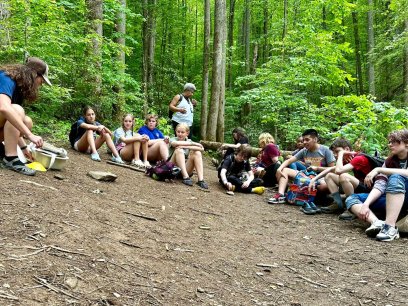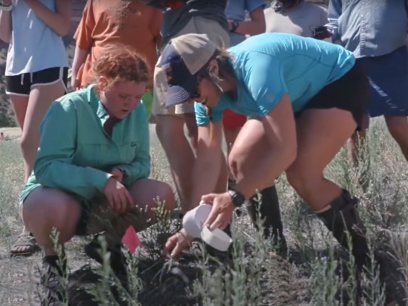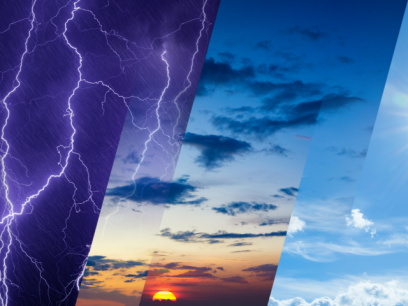
A conversation with Jennifer Palmer, founder of Women for Wildlife
Jennifer Palmer is a wildlife biologist, conservation scientist, youth mentor, public speaker, and nature enthusiast. She holds a master's degree in International Applied Ecology and Conservation from the University of East Anglia in the UK and a bachelor's degree in Biology from University of California, Santa Cruz. With two decades of professional experience and research in over 45 countries, Jennifer's work as a conservation advisor spans many different regions and cultures, including Africa, SE Asia, Oceania, the Middle East, Latin America, the Caribbean, Europe, and North America.

Jennifer founded Women for Wildlife in 2016 to support, unite, and empower women around the world in the field of wildlife conservation. Through online platforms, trainings, workshops, expeditions, and events, this organization provides opportunities for women and girls across all different backgrounds to share their experiences with each other and the world.
How did you get your start in wildlife conservation?
I've held a fascination and love for wildlife since I was very little. My bed was covered with stuffed animals and I would often spend my free time in nature, simply watching what the animals were doing. Even as a child, I remember feeling a kinship with wildlife and a strong calling to do all I could to help.
Over time I would dive deep into the study of biology, animal behavior, cognition, communication, and conservation. Throughout university I was truly fortunate to be in the field collecting data or in the lab working directly with rescue and research animals. Gaining experience early helped open doors to more opportunities to lead a wide variety of international wildlife conservation initiatives throughout my career.
What inspired you to found Women for Wildlife?
The strength and wisdom of women working in wildlife conservation has inspired me beyond measure. However, I realized that many of us often feel we are working in a silo—on our own, often in a remote part of the planet. We face so many of the same challenges, as well as extraordinary accomplishments, but without a community to share it with.
I realized that the women I had worked with in Australia, across Africa, in the US, and in Europe had not even heard of one another. So the first step for me was to create a platform that helped share our stories and begin to expand our network of support for one another.
Women for Wildlife has always been a movement to celebrate and unite women and girls who share similar passions and want to make a difference.
You founded Women for Wildlife in 2016. What sort of impact has the organization made in that time?
It is difficult to capture how much has shifted since the launch in 2016. Not only women in conservation but women in virtually every industry have found a new voice and have started to join forces like never before.
What started out as a small idea to build a community has expanded into a worldwide network of women—and those who support women—to share resources, struggles, accomplishments, advice, mentorship, workshops, and incredible friendships. We now have thousands of women connecting via regional chapters in Africa, Latin America, Europe, Oceania, India, and all across the United States.
We have participated in and hosted multiple Girls in Science events in the US, assisted over 20 wildlife conservation projects across southern Africa led by women, held several Women in Conservation training events, produced numerous videos/blogs/podcasts on women living in nature who are dedicated to conservation, and launched expeditions to help women get hands-on experience in wildlife conservation.
The impact we have seen has been truly inspiring—including joint initiatives and partnership projects, mentorships that have helped young professionals reach new levels in their careers, and women across the globe pursuing their calling to make a difference. It has been beyond heartwarming to see how powerful it is when we all come together to lift one another up!
How have things changed for women in STEM since you started? Would you say those changes are positive or negative?
The most impactful positive shift that I have started to see is the view that younger generations of girls and women have on their own abilities. When I started in STEM, at the beginning of my classes I would ask students to describe what a scientist looks like. Almost 100% of the time, all of them described an Albert Einstein-looking character with chemistry beakers, messy hair, and lab coat—and always male.
Over the past few years, that has completely changed. Now students describe women who are in the field, traveling the world, making new discoveries in science, photographing conservation stories, working to solve climate change, and leading research agencies and universities. I think that younger women in STEM now have access to more role models who they can look up to and lean on for inspiration.
Not that we didn't have women to look up to when I was younger; they were most certainly there. However, their research and accomplishments were often overshadowed by their male counterparts, so we didn't know who they were. With technology and global connectivity, we now have so many ways to share our stories and make sure that girls and young women know that they really can join in becoming a strong leader in STEM.
What do you see as the biggest challenge for women in STEM fields?
Although we are making progress in STEM and in other fields, there is still a lot of work to do for us to reach true equality, especially in terms of leadership and influence. Even today, only 30% of the world's researchers are women, and these women are publishing less and getting paid less.
Women around the world also have limited power in decision making—for example, in natural resource management. It is still challenging for women to get the same amount of opportunities in funding, assignments, and recognition. And less than 20% of government leaders worldwide are women. All of this has an impact on women in STEM and our ability to achieve equality in leadership, pay, and influence.
What advice do you have for young women interested in pursuing a career in science and/or conservation?
Invest time in building strong, supportive relationships and friendships that can guide you along the way. I would not be where I am today, or anywhere near the fortunate opportunities I have had in my career, if it was not for the people who surround me. Stand strong in your heart and follow your calling, but do your best to be strategic when you are able.
As women, we often put our cause before ourselves, but it is equally important to make sure you take care of your well-being—especially in terms of your health, mind, finances, and safety. Learn about resiliency and how to keep that fire inside of you strong and bright.
Careers in science and conservation require us all to be able to embrace that the journey is likely to twist and turn, often in ways we don't choose. It helps to nurture that inner strength and to lean on those around you when you need a bit of support.
What advice do you have for educators who want to inspire their students to pursue a career in STEM?
There is a wild world out there full of awe; use it to ignite and inspire students in STEM. Now more than ever, we have access to gorgeous media and photography, as well as the ability to host live chats with inspiring women in STEM online. It is powerful to actually meet people in various careers who can offer a more personal story about what their lives and careers are really like.
Perhaps even more than that, get your students outside in nature! There is nothing that can replace the curiosity and discovery that comes from connecting to our roots and watching STEM come alive.
What resources are available for those who want to learn more about STEM and wildlife conservation?
There are numerous online platforms to learn more about wildlife conservation and STEM. Here are a few that I think are a great place to start!
- Women for Wildlife
- Jane Goodall Roots and Shoots
- National Geographic Animals
- Wildlife Conservation Network
- Global Wildlife Conservation
- 500 Scientists
- Project Wildlife Podcast


